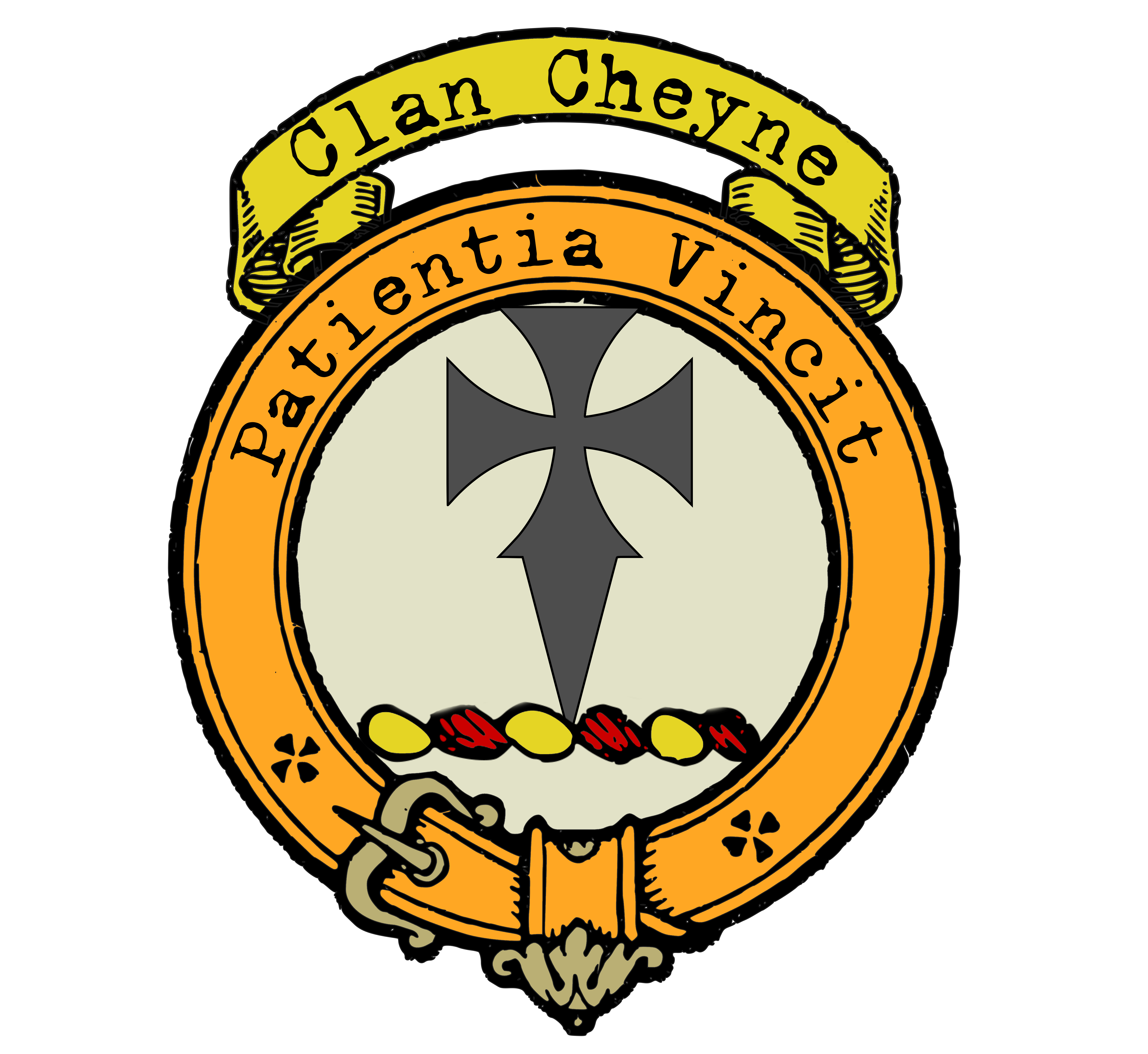The Rise of the Cheyne Clan

Clan Cheyne is an ancient Scottish clan that can be traced back to the twelfth century. According to legend, the name Cheyne originated from the Gaelic word for venison, as the early Cheynes were known to be great hunters. Reginald, the head of the family, and his son of the same name, were among the Scottish notables who, in 1284, accepted Princess Margaret, “The Maid of Norway,” as the Queen of Scotland.
Reginald’s son, who succeeded him as head of the family, was appointed one of the justiciaries for Northern Scotland by King Edward I of England in 1305, as a reward for his loyalty. He was one of the Scottish nobles who subscribed to the famous letter to the Pope in 1320, maintaining the independence of Scotland. Reginald died in 1350, leaving two daughters as co-heiresses. Tradition has it that when Reginald’s wife was pregnant with her first child, he was hoping for a son, but was disappointed when the child was a daughter. Enraged, he ordered the child to be drowned, but his wife managed to save it and have it brought up in secret. The same happened with their second daughter. When the girls reached adulthood, their mother introduced them to Reginald as his daughters and heiresses, much to his delight.
The Cheynes were involved in many battles and feuds throughout their history. One of the most notable conflicts was the Battle of Dornoch in 1427, where a force led by Cheyne of Dirlet fought against the Earl of Ross. Another significant battle was the Battle of Harlaw in 1411, where Cheyne of Dirlet fought alongside Donald, Lord of the Isles, against the forces of the Duke of Albany.
The family was also known for their strategic alliances and marriages. Mariot, one of Reginald’s daughters, married first Sir John Douglas and then John de Keith, by whom she had a son, Andrew. Mary, the other daughter, married Nicol Sutherland, second son of the Earl of Sutherland, which gave rise to the Sutherland family, Lord Duffus.
The Cheynes had several seats, including the Castle of Dirlet on the River Thurso, which was an old seat of the family. Today, the descendants of Clan Cheyne are scattered across the world, but the memory of their rich history and legacy lives on.